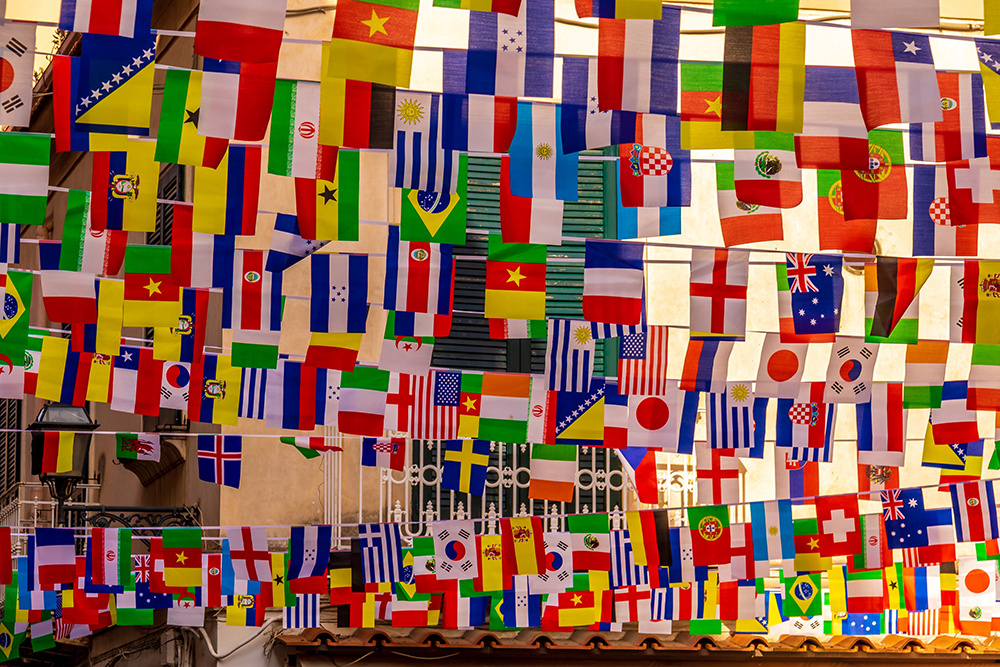The Objectives of the Observatory
The Observatory is an academic platform for scientific exchange that intends to facilitate world-wide communication and information sharing about Collective actions. The observatory also functions as a database providing information about current and previous collective actions. The Observatory seeks to develop a comparative, international and interdisciplinary understanding of collective actions’ or ‘on collective action.
To this end, the Observatory:
3. Create a space for multidisciplinary exchange
4. Develop inter-institutional and international cooperation
1. Tracks declared and initiated class actions and other forms of collective actions in addition to court decisions and settlement agreements. It also compiles the information about class actions, collective actions and other forms of group litigation from the time when class actions are first announced, all the way to settlement and final judgment.

France saw its first collective actions in the 1970s and witnessed the first group actions in 2014. Since that time, at least 400 cases have been filed in the Court system, in the field of consumer protection.
While some rulings and judgements have been published in journals -like Legifrance, by online publications, or others- a great deal of decisions have not.
The debate over the publicity of the judgements is fascinating. (See the Report on the Open Data, known as the ‘Cadiet Report’ submitted to the Garde des Sceaux in 2017)
Notably, there is no Registry of all the judgments and litigation relating to collective and group actions despite the necessity of it
Such a Register is needed to avoid a juxtaposition of judgements, to promote judicial efficiency, and to bolster legal certainty. Above all, a record is necessary because the character of collective action demands total judicial transparency from the start to its end.
For this reason, the first project undertaken by the Observatory is to compile information, and publish the record on the internet for the public.
2. Publicizes information to spread awareness about on-going collective actions, their nature and their form to people, companies and institutions.

There are many forms of mass litigation and there is no limit to the number of potential plaintiffs involved in a proceeding. Informing the public of these actions is critical.
Mass litigation can affect a number of people, and has the potential to affect broader groups (The Helvet Immo, Cler, and Jet 3 cases, where listing the members helped determine those who were affected) an indeterminate collective, (the horsemeat case) or an identifiable group (Pharmaceutical laboratory cases by Médiator, Sanofi with Dépakin or Bayer)
The importance of sharing information on how these mass litigations are handled cannot be understated. Thus, the Observatory invites the main stakeholders to share their views, in writing or through interviews.
Psycho-social anxiety leads to social conflicts. These social anxieties which lead to conflicts along generational lines lead people to question the foundations and structure of society. The first collective actions in France occurred in the 1970s. Since then, collective actions have gained popularity and have grown.
Moreover, it is important to bring attention to the interdisciplinary approaches used by ‘The Observatory’s’ researchers.
3. Create a space for multidisciplinary exchange

Group and collective actions, since they reveal the existence of a mass conflict cannot be the subject of a compartmentalized discipline. Only multidisciplinary studies can grasp the conflict and the dispute as a whole. It is a question of putting different skills to the benefit of the analysis of the data collected.
This is why the Observatory brings together professionals from Law, Science and Management, Economics, Mathematics, Psychologists and Sociology, researchers in Artificial Intelligence. See Our Method.
4. Develop inter-institutional and international cooperation

Created as a research platform, within the IDEP, the Observatory is open to any researcher, activist and practitioner wishing to integrate it and being able to bring an original vision of the subject.
Inter-institutional cooperation is thus at the heart of its operation. Partnerships are thus developed with other research centers and laboratories in the disciplines concerned (for example, the CNRS funded a study in 2018). The same applies to any entrepreneur wishing to improve his position in order to avoid group actions, and associations wishing to provide an insight about their strategic reflections.
Internationally, cooperation is developing through partnerships with other researchers and other Centers devoted to collective actions in general and in particular to class actions and group actions, such as the Observatory has partnered with the Class Actions Lab, the Ontario Class Action Clinics, The Israeli Class Actions, Class Actions Argentina and opened to linking projects worldwide).

Other general objectives of the establishment of a collective action observatory:
• Creation of a database in order to identify class actions in the process of litigation or negotiation
• Provide a visibility tool for the actions of French groups and the dissemination of information, in the EU and internationally
• Observation of the effects produced by the announcement of a class action as well as by the fact of initiating a proceeding (judicial or extrajudicial) for class action
• Dissemination of information relating to group actions, in order to contribute to a better understanding of these new mechanisms
• Raising the awareness of group members, in order to enable them to understand the interest of adhering to group actions, as a guarantee of a better effectiveness of the system

• Raising companies’ awareness, in order to convince them of the importance of adhering to compliance programs, as well as of compromising if necessary, to contribute to the dissuasive effectiveness of the implementation of group actions. The socio-economic effect can therefore be strategic
• Creation of a research space bringing together teacher-researchers and doctoral students motivated by the new practices generated by group actions
• Promotion of partnerships with organizations concerned by group actions as well as with university laboratories and with other centers abroad whose mission would be equivalent
• Establishment of international partnerships, some of which are already underway (Argentina, Belgium, Canada, Luxembourg)
• Obtaining a positioning which will thus be a source of proposals for the improvement of the systems in force, based on objective bases
Maria Jose AZAR-BAUD
Lecturer, Paris-Saclay University
Lawyer part of the Paris Bar
Founder of the Observatory of Group Actions and other Collective Actions
